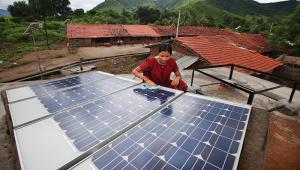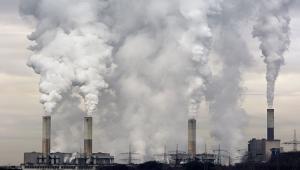Web_GreenhouseGasses_shutterstock_314808188.jpg

Greenhouse gas emissions. ©Shutterstock
A report from environment group Business for Nature, said that reducing some of the yearly spend on harmful subsidies could fund the $700bn per-year needed to reverse nature loss by 2030.
It said that the draft Global Biodiversity Framework published last year by the United Nations, which seeks to reduce harmful subsidies by $500bn per year, must be strengthened to commit governments to redirecting, repurposing or eliminating all environmentally harmful subsidies by 2030.
Christiana Figueres, former executive secretary of the United Nations Framework Convention on Climate Change, said: “At least $1.8trn is funding the destruction of nature and changing our climate, while creating huge risks for the very businesses who are receiving the subsidies.
“Harmful subsidies must be redirected towards protecting the climate and nature, rather than financing our own extinction.”
She added that government's must do more to help mitigate global warming, after a separate $100bn per-year climate finance target missed its 2020 deadline.
In 2010, nations at the UN Convention on Biological Diversity Summit pledged to phase-out harmful aid payments by 2020, but the international community failed to meet the promise, the report said.
The pledge was hampered by a lack of cross-industry standards and mandatory compliance to stem the flow of finance into harmful subsidies, the report said.
The organisation said that more than half of environmentally harmful subsidies are spent on fossil fuels and agriculture ($1.1trn) every year, damaging water supplies and emitting high levels of pollution.
It added that whilst subsidies boost investment, it tends to drive money towards environmentally harmful sectors, which slows the market exit of polluting businesses.
The report said that any reforms should provide support for poorer households and vulnerable communities to offset any lost income.
It uregd nations to develop new standards requiring the disclosure of all subsidies, allowing experts to determine which constitute environmentally harmful impacts, the organisation said.
Additionally, governments could amend international reporting standards to include mandatory environment social and governance disclosures to all subsidies, the report added.
During the COP26 conference in November, Indian prime minister Narendra Modi urged developed nations to pledge up to $1trn in climate finance to help combat global warming.
Experts were critical of the lack of financial support for emerging economies in the COP26 agreement, despite the failure to meet the $100bn per-year Paris Agreement target.













